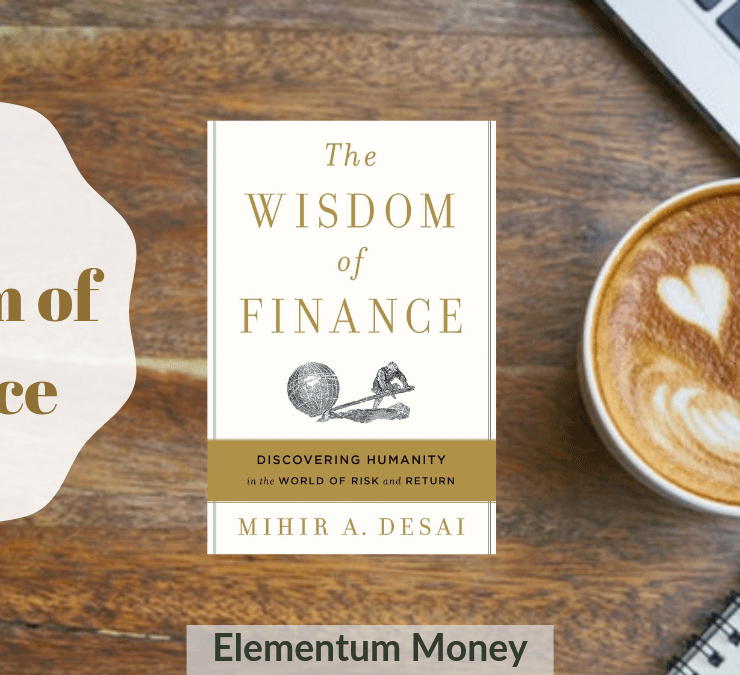
Another Friday and another book. This time I finally read a book by one of the really famous money guys – Dave Ramsey! However, since debt is not the single point focus of this blog, I decided to swerve a little from the popular favorite Dave Ramsey book of the Total Money Makeover and instead go for a multi-dimensional book by him – Dave Ramsey’s Complete Guide to Money.
The book makes for a great read about all things money and is a handbook for the course at Financial Peace University. Which also means that the book is peppered with anecdotal examples of some of the students and enough testimonials to show that the advice really works.
Since the book is packed with quite a few financial gems, let’s just jump right into it:
Personal finance is just 20{76b947d7ef5b3424fa3b69da76ad2c33c34408872c6cc7893e56cc055d3cd886} knowledge and 80{76b947d7ef5b3424fa3b69da76ad2c33c34408872c6cc7893e56cc055d3cd886} behavior
The fact is that you could be reading all the great money books ever written, but unless you really take it upon yourself to take any and every action required to get your finances in shape, no amount of knowledge is going to help you.
Take baby steps towards financial clean-up and discipline
When making a big change in life, it’s never a good idea to go all-in. While it might work in cases of addiction like smoking, for behavioral changes, small progressive steps have a much higher probability of a long-term impact.
To give a better idea of the route map you could follow, Ramsey lays out 7 baby steps designed to improve the quality of your financial life – 1. Put $1,000 in a beginner emergency fund ($500 if your income is under $20,000 per year). 2: Pay off all debt using the debt snowball. 3: Put three to six months of expenses into savings as a full emergency fund. 4: Invest 15 percent of your household income into Roth IRAs and pre-tax retirement plans. 5: Begin college funding for your kids. 6: Pay off your home early. 7: Build wealth and give.
Money is like a brick
Dave talks about the money blocks that a lot of his attendees come up with, especially when they call money evil. That is when the book talks about a fantastic concept. Money, on its’ own, has no character. It’s only us humans who define how we mold it to use it. Just like a brick. The brick can be used for breaking a persons’ head or to build a hospital. The result depends not on the brick but on who is the one using it. Money is like that too – can be used for good or for evil depending on the character of the person using it.
Discipline is key to succeeding financially
Putting money away into savings or for retirement with every paycheck for decades requires a resolve of steel. You do need the discipline to sometimes refuse the allure of the latest shiny object and instead put away money into savings.
But, come to think of it, discipline is required to succeed at almost anything in life. Think about any international level sports person like Roger Federer. I am willing to bet any amount that the man would have displayed obsessive discipline since childhood to reach this level. Do you want to succeed with money? Be disciplined, day in and day out.
Agreement on money can be key to a happy marriage
While I dealt with money and marriage at a very basic level when I talked about managing money, the fact remains that money feuds are the number 1 reason for divorce. Agreeing with your spouse on money matters is not just an avoidance of divorce but can lead to much higher levels of satisfaction. As Dave points out, money is rarely about money alone. The underbelly of money can be fascinating as it is often tied to our deepest passions, dreams and value systems. Alignment on money matters then leads to alignment on value systems.
Teach your kids about money from an early age
While children absorb and learn a lot by watching their parents behave, a lot needs to be actively taught to them as well. Dave advocates teaching kids about money in 4 areas – 1. Work: you need to work to earn money. 2. Save: Accumulate funds for purchases so you don’t have to borrow 3. Spend: Letting kids spend is important so they don’t become miserable misers or crazy spenders once free 4. Give: It’s never too early to start with the habit of giving.
In one of my recent posts, where I talked to Debra Mesch, for the first time I learned about the concept of dividing a child’s allowance into 3 parts – save, spend and give. Looks like Dave might be one of the early proponents of the idea.
Budgeting helps you know your money better
So many of us literally sleep-walk with our money, giving no thought to the inflow or outflow. While I am not completely on board with Dave’s definition of budgeting by assigning numbers to each spend category, I do firmly believe it is a must to pay yourself first along with tracking your expenses and your cash inflow.
You are sure to realize some hidden nooks and corners from which your money might be leaking. In my experience too, money seems to buy more things than what I had thought possible once I started tracking my expenses.
Break up with debt at the earliest
In the book, Ramsey breaks a lot of myths people use to justify the debt that they carry. He classifies credit card spends also as a type of debt considering a lot of people get into the vicious spiral of the credit card debt. Also, as research has shown, it is far easier to spend money through credit cards than actually counting out cash and parting with it.
One of my biggest eureka moments from the chapter was how debt consolidation is not a good idea, especially when done with the objective of reducing the EMIs. Debt is supposed to be paid off quickly with as much money as you can throw at it. Smaller payments can only mean a longer tenure and more interest paid.
A credit score is more of an “I love debt” rating
Even though credit score is a recent entrant in India, it’s quickly gaining in popularity. While Dave does not advocate ditching the score altogether, he makes a valid point that most of the components have a to do with credit history. In fact, for someone with no credit history the score, instead of being higher is actually negative. That is a reason to take this score with a pinch of salt.
Follow a plan for big purchases
Big purchases can in one wipe change your financial landscape. It’s important that you do not let those decisions be impulsive. Decide as a household as to what amount qualifies as a big purchase. Then follow some rational steps as mentioned by Dave Ramsey: 1. Wait overnight to see if you still want to make the purchase with a fresh mind. 2. Question as to why are you buying it and the need that it fulfills 3. Do not buy what you don’t understand, be it financial, technical or any other products 4. Consider the opportunity cost of what you are letting go to make that purchase 5. Talk to your spouse or an accountability partner to get an outside perspective.
Bargain before buying anything
Never assume the mentioned price is the final price. As a culture, we Indians are known as bargainers or hagglers. No wonder some shops explicitly mention on the cash counter – No bargaining please. However, you will be amazed at the kind of savings bargaining can get you with often very simple tools like silence.
Make saving for retirement a bigger priority than saving for your childs’ college fund
Dave Ramsey gives a great perspective here – college education does not guarantee a bright future. I had always wanted to do my MBA from one of the top 6 IIMs. Having missed admission in one by a whisker I often wondered how different my life would have been. But, now having met a lot of IIM alumni, I can safely say a college does not make a person. It might give them a springboard but not the guarantee of a successful life.
Enough and more couples end up saving for their child’s education with no thought to their own retirement. That’s financial suicide. Save for both but ensure retirement is taken care of.
Always give with your money
Giving makes you unselfish. Only people who are unselfish also receive openly. Ensure you take the time and the effort to consciously give to causes that you are passionate about. If you want to make it a regular habit, make sure you automate it.
The book is packed with many more of such valuable financial nuggets. If you found yourself mulling over or nodding to any of these, then make sure you read the book. For any opinions, do leave a comment.





Leave a Reply